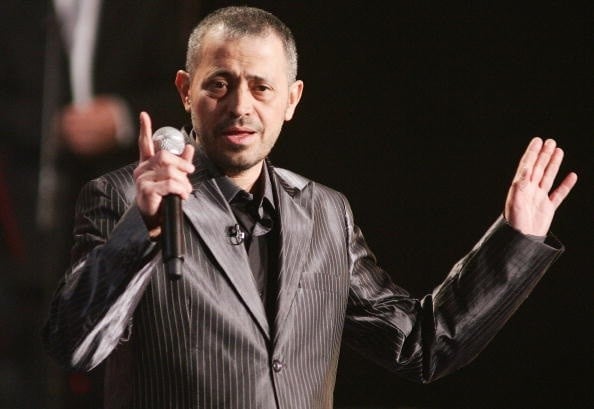What is George Wassouf's net worth?
George Wassouf is a Syrian singer who has a net worth of $20 million. George Wassouf has sold more than 30 million albums worldwide. He has released many Arabic music albums and supported the Bashar al-Assad government through the Syrian Civil War.
Born Georgios Wassouf in Kafroun, Syria, in December 1961 to a Syrian Orthodox Christian family, he began his musical journey at the remarkably young age of 10, when he was discovered by his first manager who gave him the stage name "Al-Wassel," meaning "the connector."
As a child prodigy, Wassouf performed at local venues and restaurants in Syria and Lebanon, quickly gaining recognition for his distinctive voice and emotional delivery. His breakthrough came in 1980 when he released his first album at age 19. His unique vocal style, characterized by its deep, powerful timbre and ability to convey raw emotion, earned him the nickname "Sultan al-Tarab" (Sultan of Music).

Wael Ladki/AFP/Getty Images
Throughout the 1980s and 1990s, Wassouf released numerous hit albums and singles that made him a household name across the Arab world. Some of his most famous songs include "El Hawa Sultan," "Kalam El Nas," and "Law Haramnah El Hob." His music often deals with themes of love, heartbreak, and social issues, resonating deeply with audiences across generations.
Wassouf's contribution to Arabic music goes beyond his commercial success. He helped modernize traditional Arabic music while maintaining its authentic roots, creating a bridge between classical tarab and contemporary pop styles. His influence can be heard in the work of many subsequent Arab singers who have attempted to emulate his distinctive style.
Despite personal challenges, including health issues and family difficulties that became public over the years, Wassouf has maintained his status as one of the Arab world's most respected artists. He has performed thousands of concerts throughout the Middle East, Europe, and the Americas, selling millions of albums throughout his career.
Wassouf's impact on Arabic music and culture has earned him numerous awards and honorific titles. He is often referred to as "Abu Wadih" (after his eldest son) by his fans, following the Arab tradition of referring to fathers by their firstborn son's name. His music continues to be celebrated across the Arab world, and he remains active in the music scene despite health challenges in recent years.
/2015/07/George-Wassouf.jpg)
/2015/07/Najwa-Karam.jpg)
/2015/07/Kazem-el-Saher.jpg)
/2015/07/Elissa.jpg)
/2015/07/Majida-el-Roumi.jpg)
/2015/07/Amr-Diab.jpg)
/2023/03/Matt-Cameron.jpg)
/2009/12/Denise-Richards.jpg)
/2020/04/Eddie-Vedder.jpg)
/2023/05/Jelly-Roll.jpg)
/2025/03/sami.png)
/2010/08/GettyImages-460635372.jpg)
/2010/12/Stone-Gossard-1.jpg)
/2009/10/Bono.jpg)
/2013/03/Catherine-Zeta-Jones.jpg)
/2010/12/GettyImages-489914609.jpg)
/2022/11/charlie-sheen.jpg)
/2015/07/George-Wassouf.jpg)
/2015/07/Kazem-el-Saher.jpg)
/2011/05/Bashar-Al-Assad.jpg)
/2017/04/GettyImages-110787817.jpg)
/2014/12/john-farnham.jpg)
/2015/07/Najwa-Karam.jpg)
/2014/12/Mary-Travers-1.jpg)
/2015/12/Monica-Naranjo.jpg)